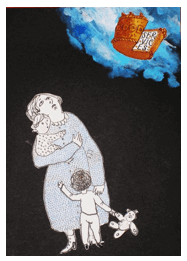The post-code lottery persists and will now be celebrated as the triumphs of ‘localism’
 Editorial comment
Editorial comment
Two pieces of good news came my way over the holiday: NAS (National Autistic Society) reports that the government has sent a clear message to local authorities about what they are expected to provide for adults with autism. The Council for Disabled Children reports a transfer from the government of £800m over the next four years to local authorities to fund short breaks for families with disabled children. These are significant breakthroughs and must surely represent a lot of hard work by very many committed people. Congratulations to them.
Without detracting from the great success of these campaigns, there is need to reflect on the dire state of the ‘local authorities’ who are being asked to pick up these new responsibilities. First of all, we know they are short of money (my first understatement of the year), PCTs (Primary Care Trusts) are in the process of dismantling themselves, and local education provision faces nothing less than revolution as, to date, one in ten secondary schools in England have opted out of their local authority to become academies.
The creed of the coalition government is localism in which local communities are empowered to replace these ‘old’ institutions with the sorts of services they want, no longer having to put up with what they are given by the state. I expect the millionaires who make up the Cabinet are long accustomed to getting what they want, but local citizen action at a time of severe money shortage requires a head of steam generated by a body of energetic people with commitment, know-how, time and access to resources. It also requires, by definition, an identifiable ‘community’ with a membership of people who feel they belong to it, benefit from it and carry responsibility for it. This might well be an altogether alien concept for many of us who are long conditioned to the competitiveness of capitalist society – whether we feel we are benefiting from it or suffering under it.
My prediction is that localism itself will have to be characterised by rampant competitiveness, with the biggest and loudest ‘community’ groups getting the biggest pots of cash from the un-ring-fenced grants coming down from the government. Imagine a small band of parents of children with complex health needs having to compete with an army of local cancer patients for the ear of GP commissioners. Imagine a smattering of young adults with autism trying to elbow other local teenagers out of the way so they can get what they need when they leave school.
Like it or not, local competitive lobbying is the new game. The old aspiration for fairness in provision across the country is history. Under the political creed of localism, society, which for me functions primarily to protect the vulnerable, is being dismantled. In its place there will be only a disconnected patchwork of medieval market places. We should probably not be surprised to learn that this how a Cabinet of millionaires thinks the caring sector should function.
Peter Limbrick
Cartoon © Martina Jirankova-Limbrick 2011
Would you like to write a ‘Comment’ for the Bulletin? Contact This email address is being protected from spambots. You need JavaScript enabled to view it.

